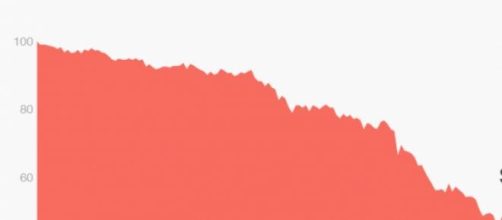Richard Fisher, who is head of the Dallas Federal Reserve, accused Saudi Arabia of engineering the current oil crisis. Fisher was speaking at the Economic Club of New York on wednesday. He became the most prominent in a growing number of U.S. officials to pin the dramatic drop in prices for the valuable commodity.
Referring to the unprecedented growth in the U.S. oil industry over the last few years, Fisher said: "We are a huge supplier of energy. The Saudis took a while to realize what was going on". Saudi officials have repeatedly denied that they orchestrated the current slump in prices, maintaining that they were caught off guard by the meltdown.
The world's largest oil producer has repeatedly blamed demand and supply for the crisis, but it has acknowledged that it's having grave effects on U.S. shale. Prince Alwaleed bin Talal, a renowned global investor and member of the ruling Saudi royal family, said last month that OPEC and Saudi Arabia did not engineer the reduction in oil prices. He did however said that "there's a positive side effect, whereby at a certain price, we will see how many shale oil production companies run out of business."
Yet, when the oil prices first started their dramatic plunge near the end of summer last year, OPEC, which is led by Saudi Arabia, on Thanksgiving day voted not to cut back on production. The announcement saw the prices of the world's largest energy source fall considerably.
Fisher said that Saudis don't just benefit economically from low oil prices. There are big political gains associated with cheap oil for Saudi Arabia, since it puts pressure on the monarchy's biggest regional rival Iran. According to the Dallas Federal Reserve chief, Iran's oil-dependent economy requires that the commodity trade close to $135 a barrel. Saudi Arabia, on the other hand, has massive cash reserves and can withstand artificially low prices for a much longer period.
Oil prices fell dramatically over the course of 2014, starting the year at a fairly stable $100 per barrel. By January this year, the price for black gold as the valuable commodity had come to be known was less than $50 per barrel.
© ALL RIGHTS RESERVED

